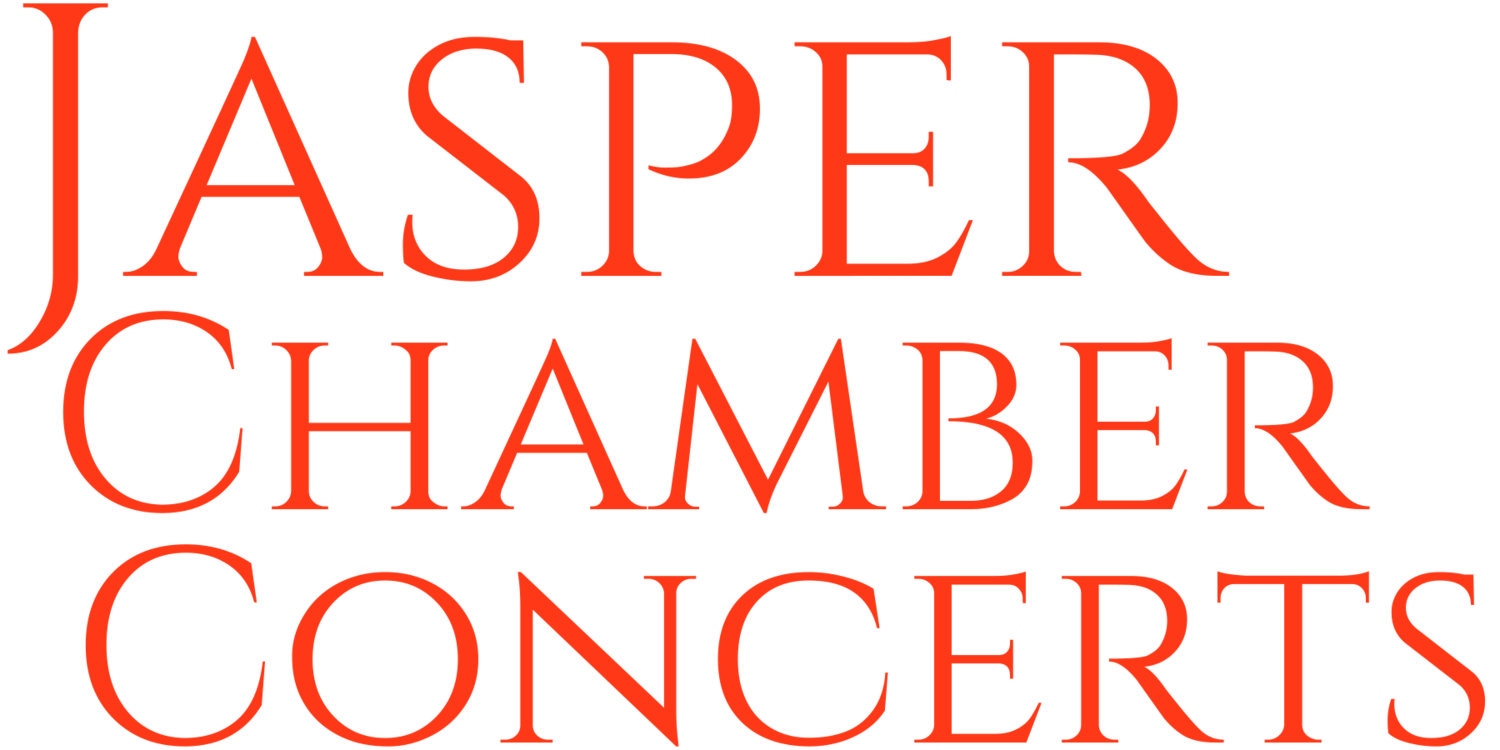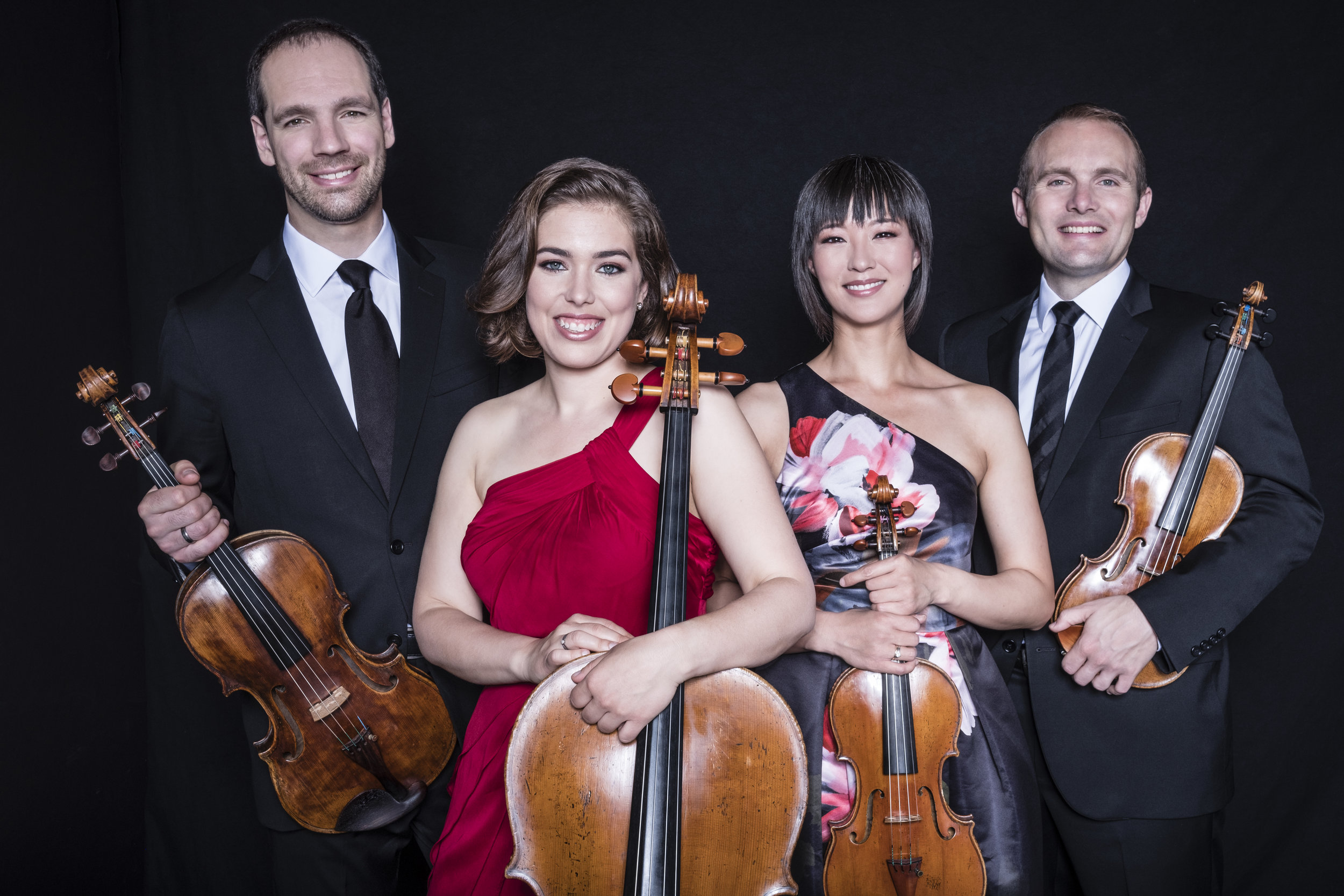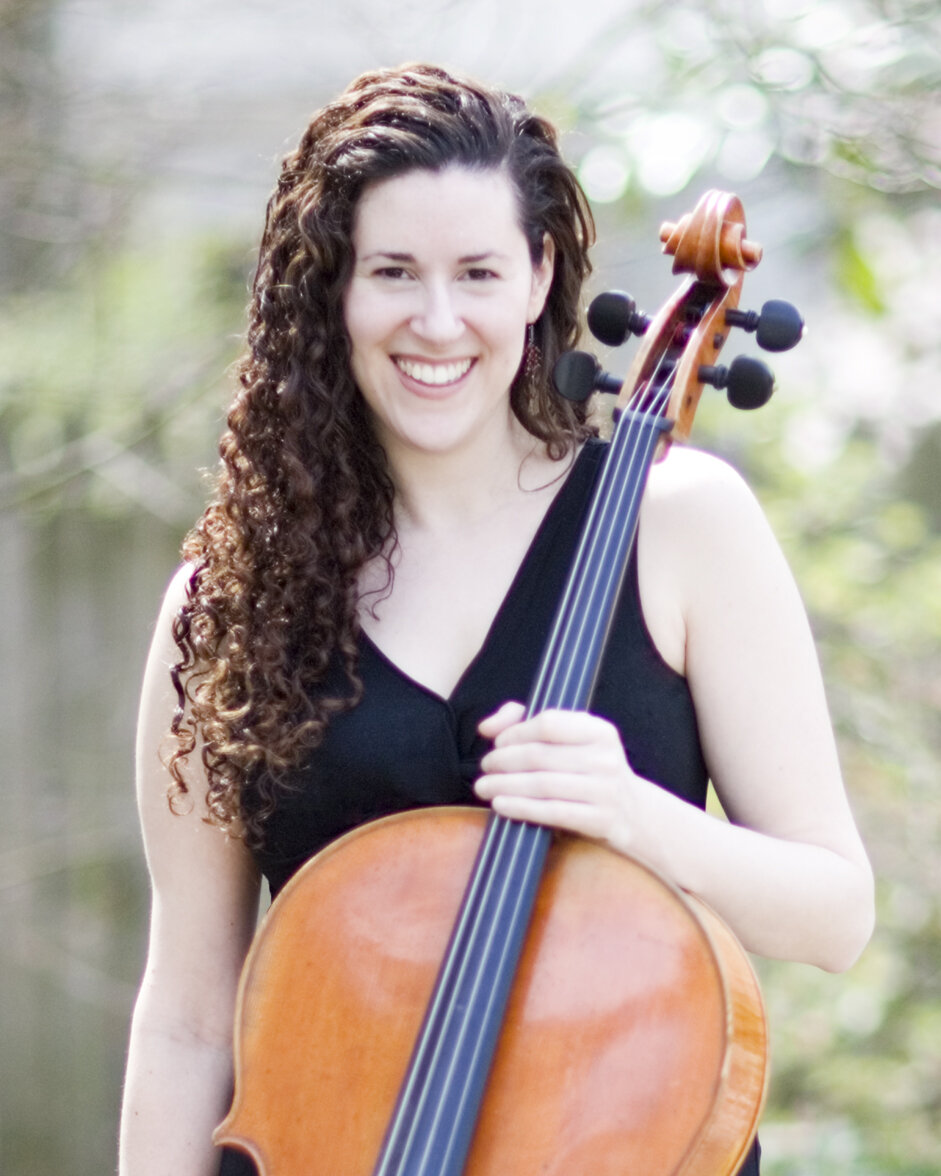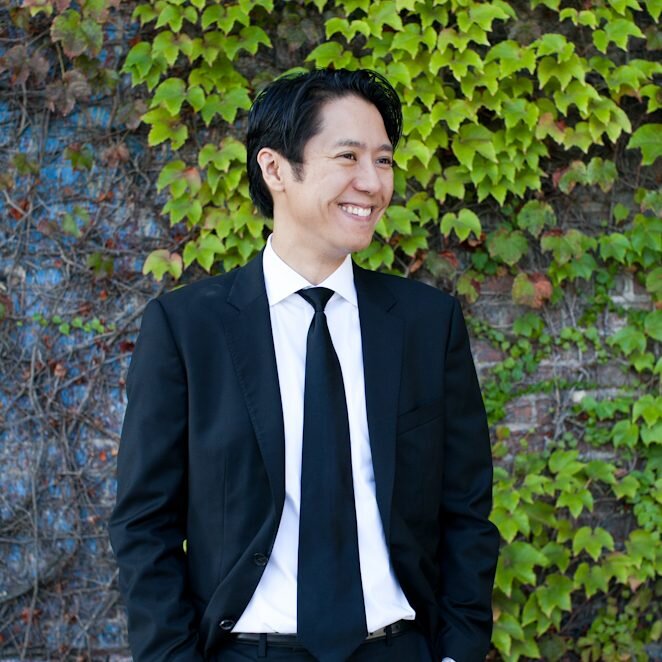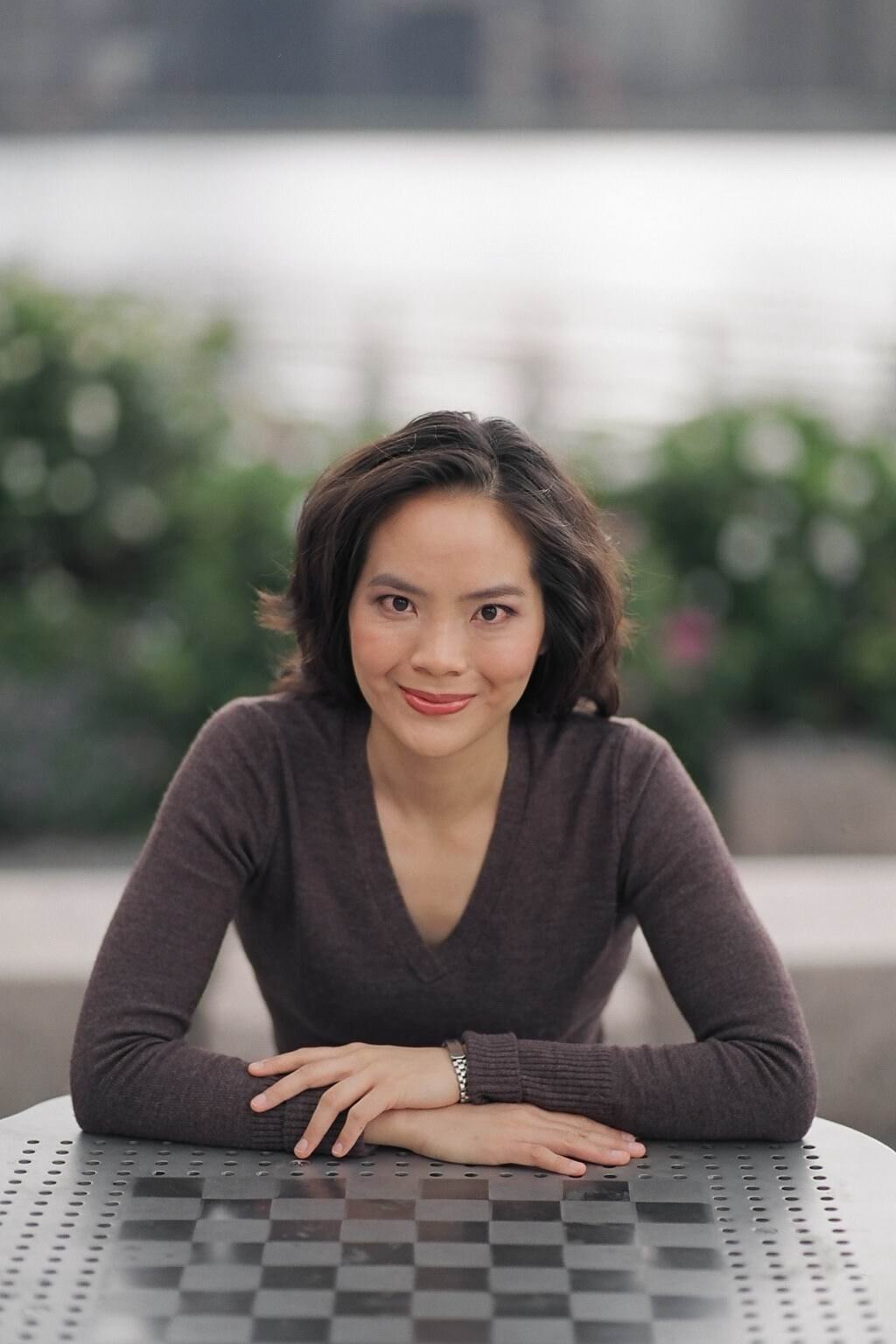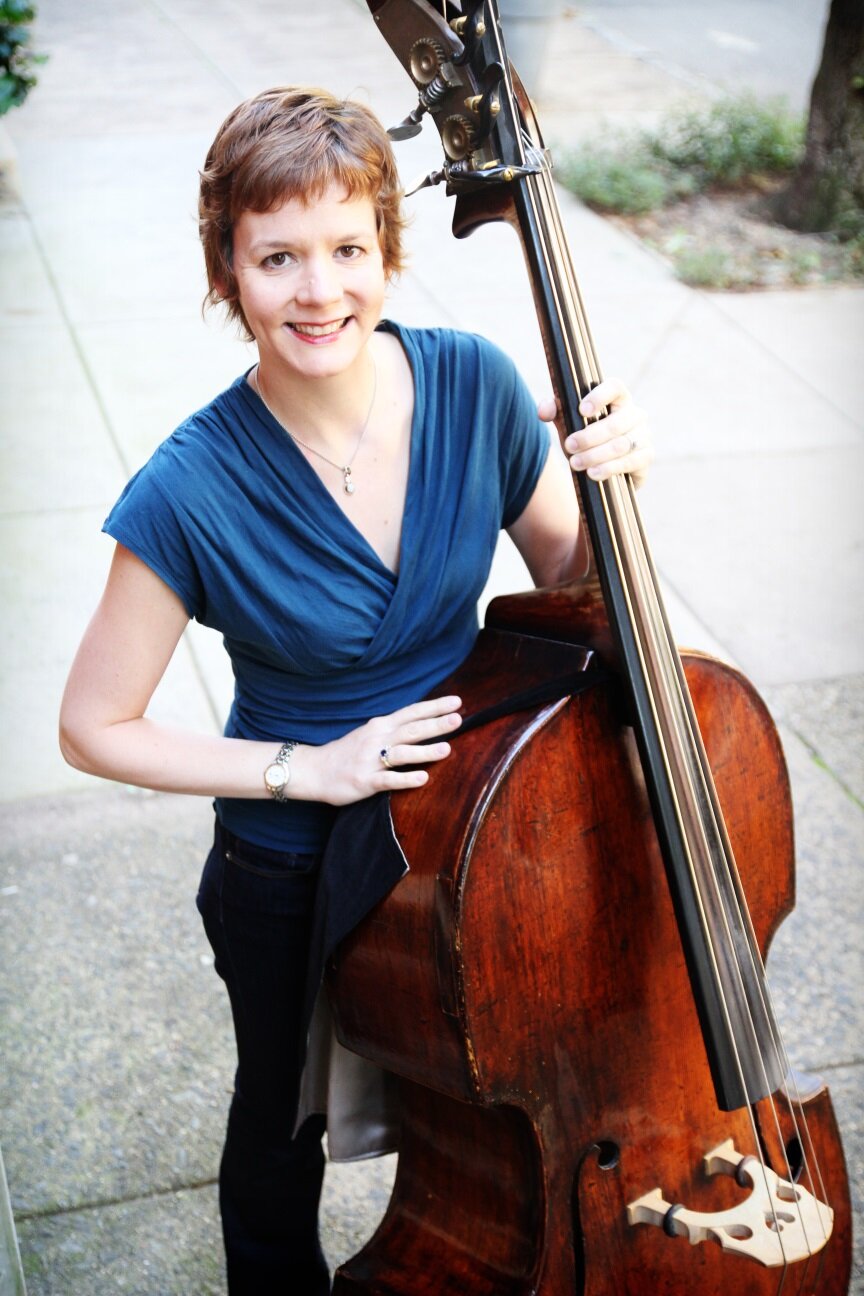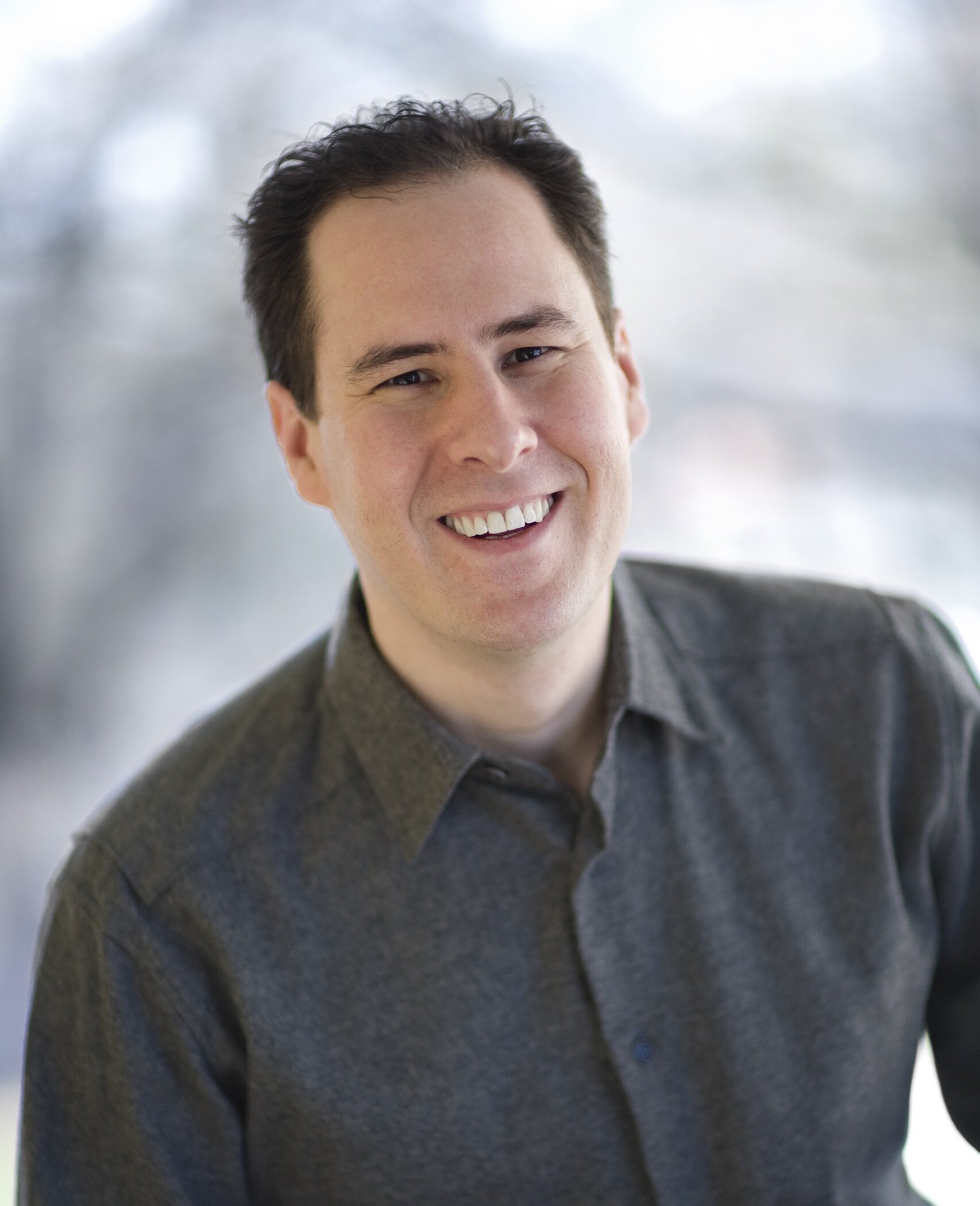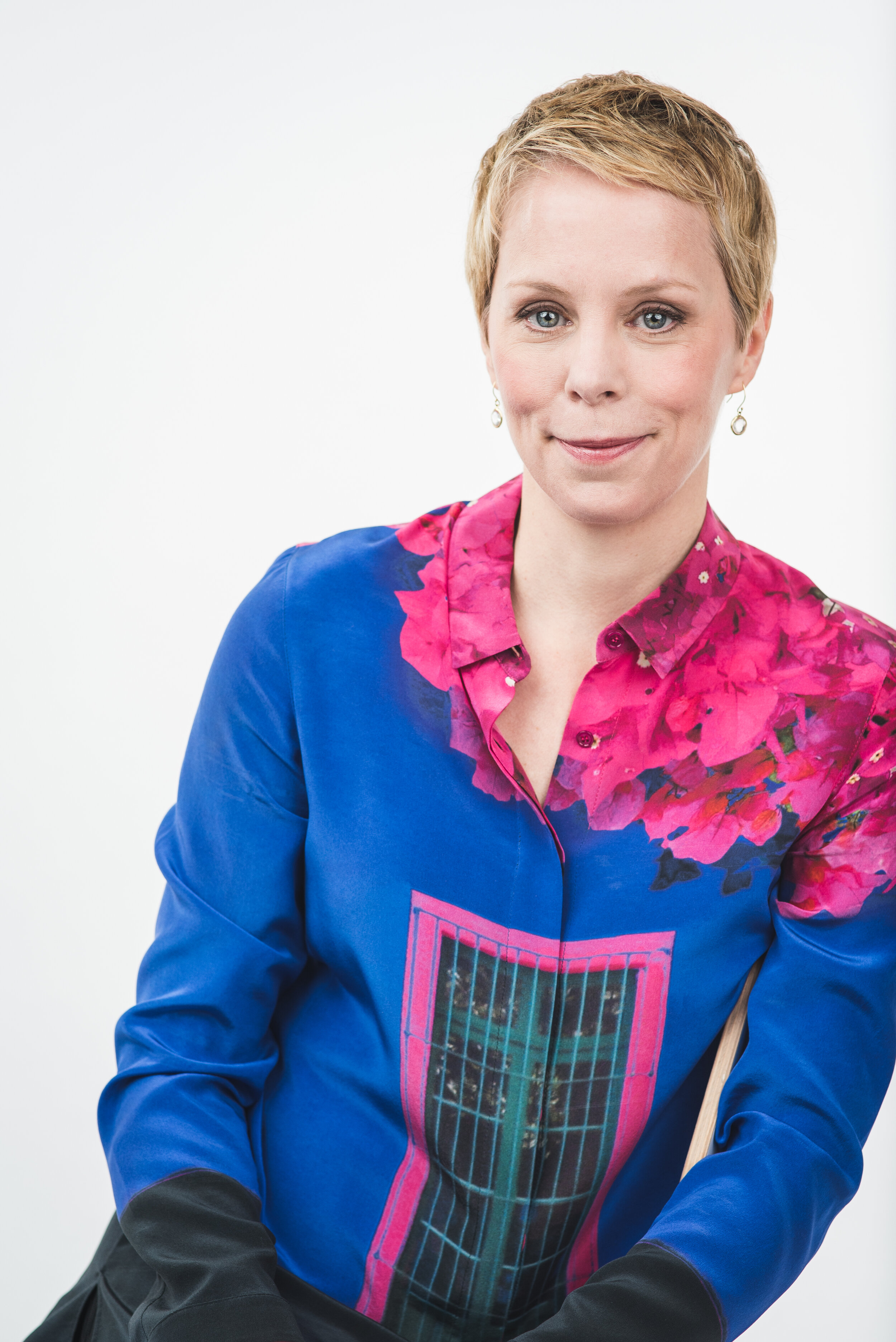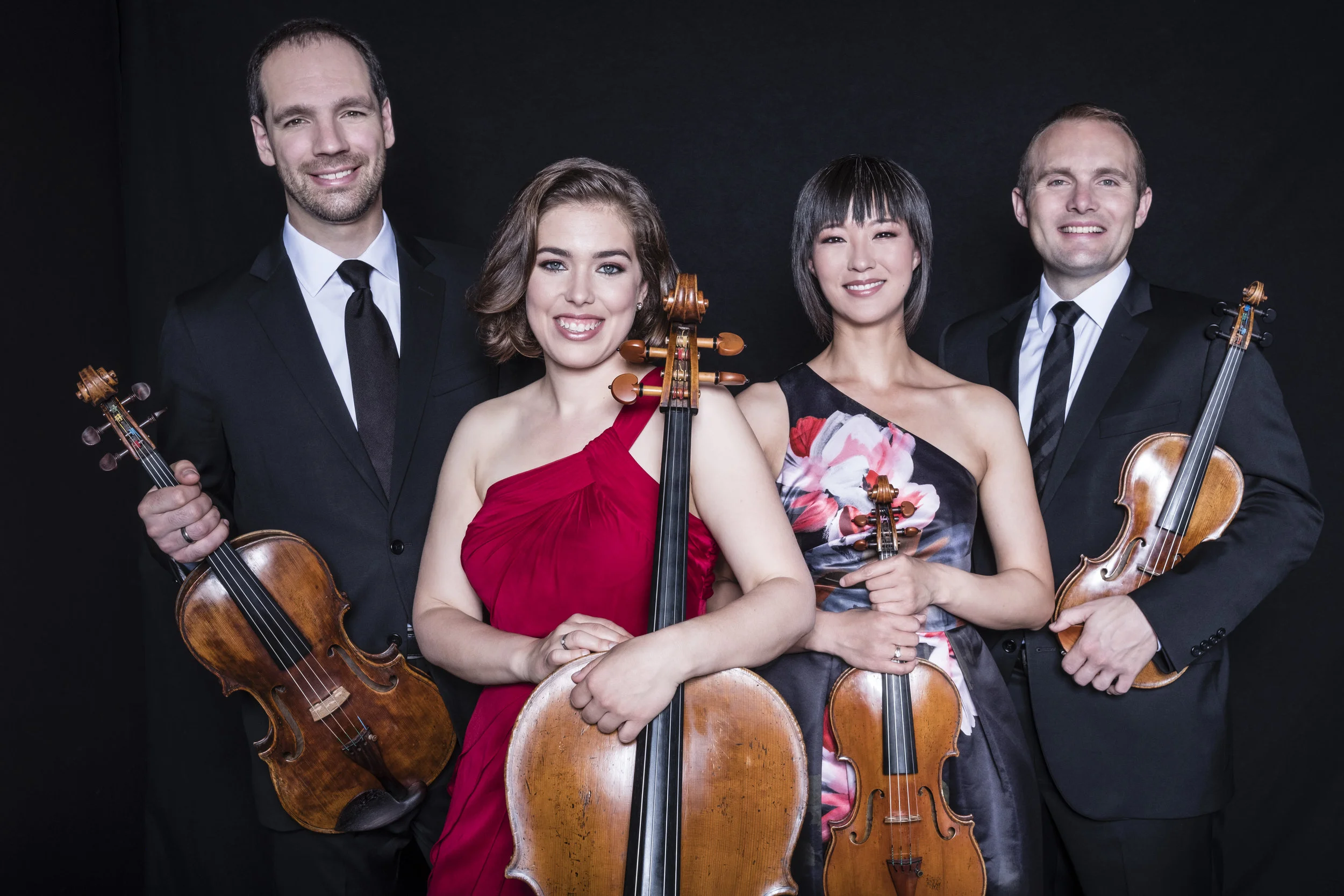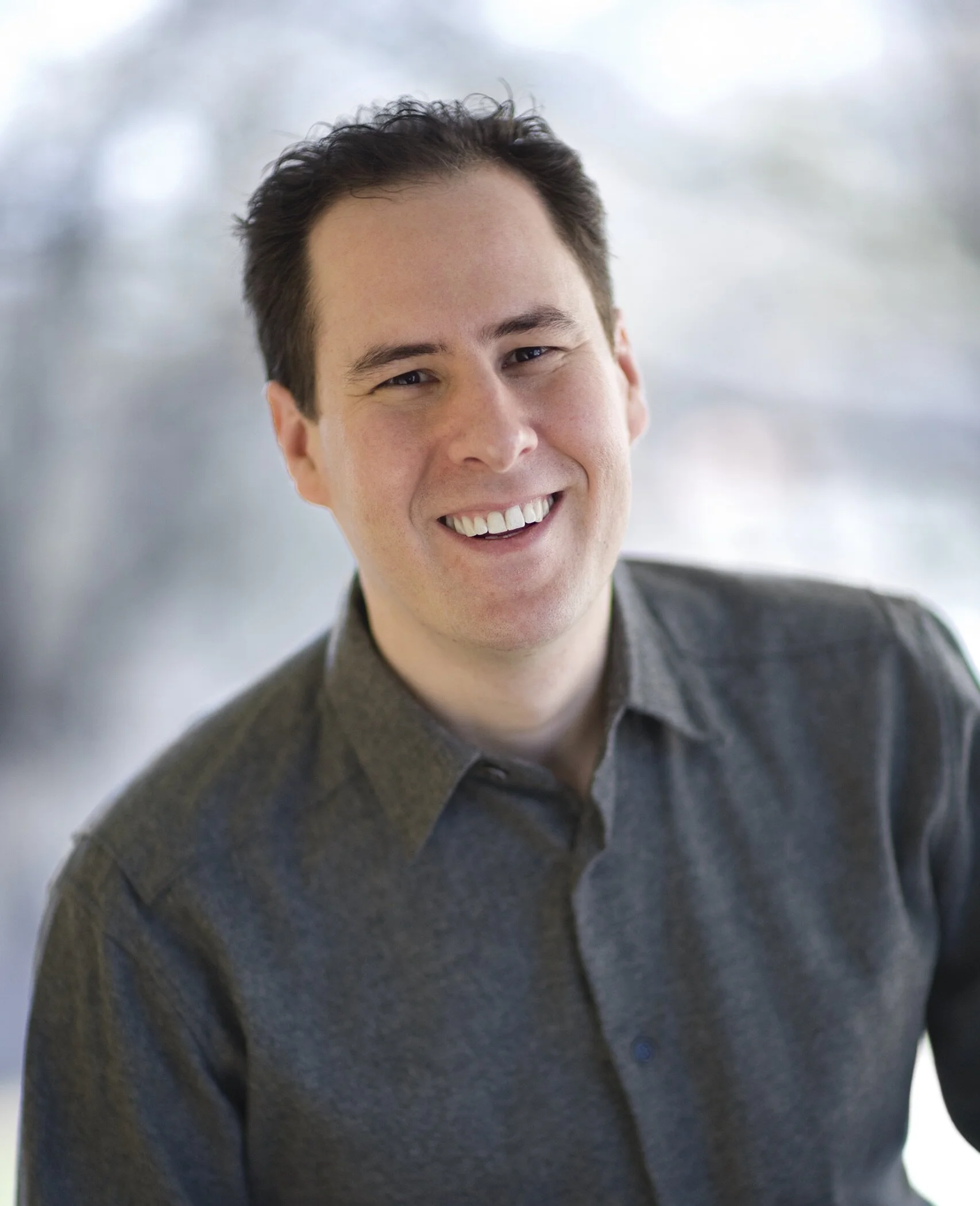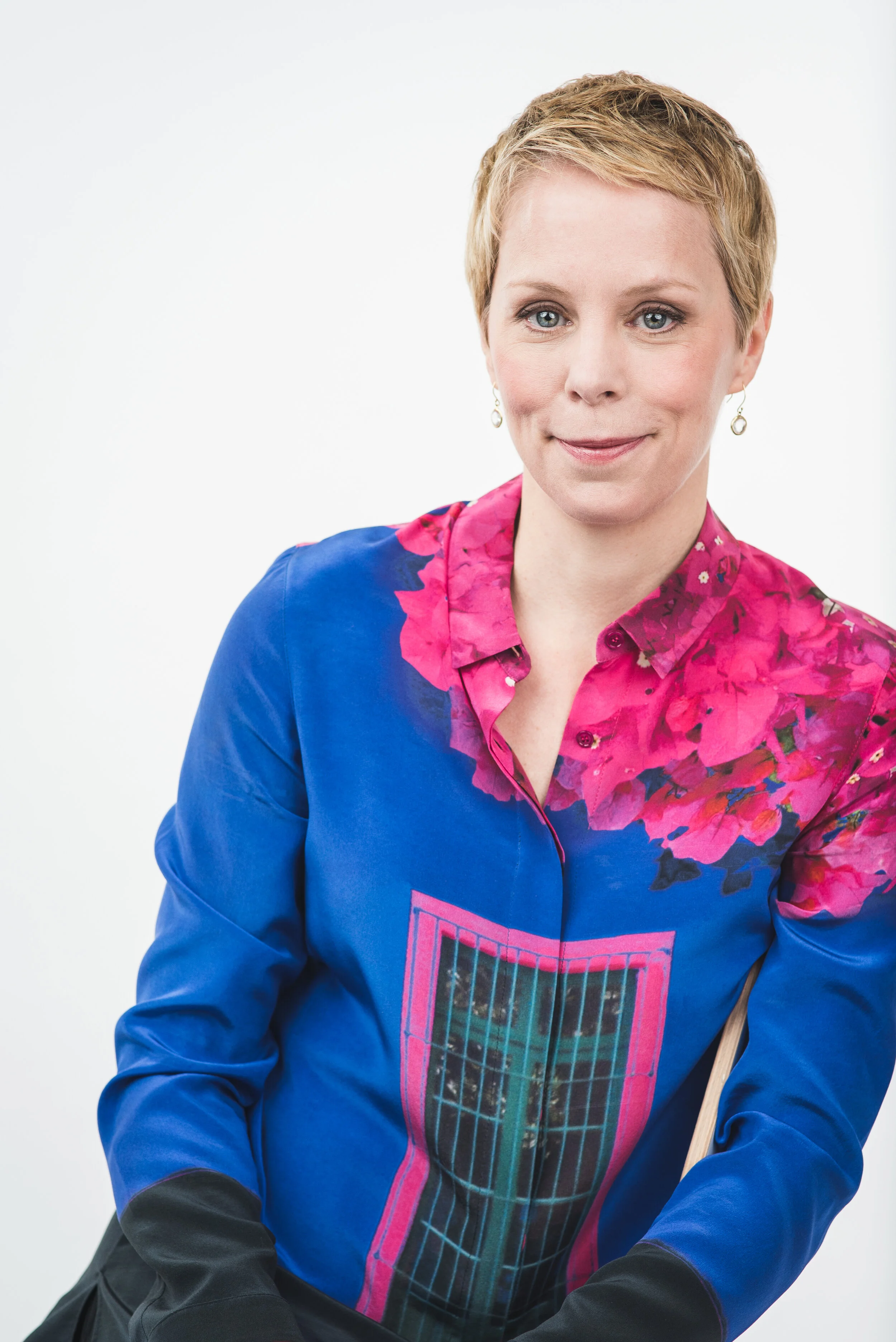2019-20 Composers & Performers
Jasper String Quartet, founder and presenter
Winner of the prestigious CMA Cleveland Quartet Award, Philadelphia's Jasper String Quartet is the Professional Quartet in Residence at Temple University's Center for Gifted Young Musicians.
The Jaspers have been hailed as “sonically delightful and expressively compelling” (The Strad) and "powerful" (New York Times). "The Jaspers... match their sounds perfectly, as if each swelling chord were coming out of a single, impossibly well-tuned organ, instead of four distinct instruments." (New Haven Advocate)
History
The Jaspers swept through the competition circuit while in school, winning the Grand Prize and the Audience Prize in the Plowman Chamber Music Competition, the Grand Prize at the Coleman Competition, First Prize at Chamber Music Yellow Springs, and the Silver Medal at the 2008 and 2009 Fischoff Chamber Music Competitions.
The Quartet was the 2010-12 Ensemble-in-Residence at Oberlin Conservatory and, in conjunction with Astral Artists, was awarded a 2012 Chamber Music America grant through its Residency Partnership Program for work in Philadelphia schools. In 2016, the Quartet won the Fischoff Educator Prize, given to a group who successfully incorporates educational work into their career.
Programming and Jasper Chamber Concerts
Critics and audiences commend the Jasper String Quartet’s “programming savvy” (clevelandclassical.com) and they have performed throughout the United States and in Canada, England, Italy, Japan, Korea, Norway and Panama.The Quartet programs pieces emotionally significant to its members ranging from Haydn and Beethoven through Berg, Ligeti, and living composers. With Jasper Chamber Concerts, the Quartet is delighted to bring this programming to Philadelphia four times a year.
Praised as "passionate and elegant" by The New York Times, cellist Amy Sue Barston has performed as a soloist and chamber musician on stages all over the world, including Carnegie Hall, Alice Tully Hall, Ravinia, Bargemusic, Caramoor, Haan Hall (Jerusalem), The Banff Centre (Canada), The International Musicians Seminar (England), The Power House (Australia), and Chicago's Symphony Center.
At age seventeen, she appeared as soloist with the Chicago Symphony Orchestra on live television, was the Grand Prize winner in the Society of American Musicians' Competition, and won First Place and the Audience Prize in the Fischoff International Chamber Music Competition.
Beginning at age three, Amy studied with Nell Novak at the Music Institute of Chicago, Eleonore Schoenfeld at USC, and Joel Krosnick at Juilliard, where she earned her Masters degree. She also worked with Yo Yo Ma, Gary Hoffman, Ralph Kirshbaum, Tim Eddy, David Geringas, and Pinchas Zukerman.
Amy has performed as soloist with the Chicago Symphony, the Chicago Chamber Orchestra, the Prometheus Chamber Orchestra, the Rockford Symphony, the USC Symphony, the Westchester Symphony, and the University of Michigan Symphony Orchestra, among many others. She made her first solo appearance with orchestra in Guelph, Canada when she was twelve.
Amy is artistic director of the Canandaigua Lake Music Festival in New York, and the cellist of The Corigliano Quartet, which has been hailed by Strad Magazine as having "abundant commitment and mastery," and whose recent Naxos CD was named one of the top two recordings of the year by both the New Yorker and Gramophone Magazine. Her piano trio, Trio Vela, performs regularly at Bargemusic in New York City. She also performs regularly in duos, trios, and quartets with the world's most celebrated fiddler, Mark O'Connor. Amy has performed sonatas and chamber music with many of the world's leading musicians, including Leon Fleisher, Jon Kimura Parker, Arnold Steinhardt, Bernard Greenhouse, and Ani Kavafian.
Amy is also a devoted teacher: in her home, at the Juilliard School Pre-College, and at numerous summer music festivals. Several of her students commute for lessons from hundreds of miles away, some from as far away as Alaska and Japan. Amy's upcoming schedule includes solo and chamber music performances in England, Sydney, New Zealand, Tokyo, New York, Los Angeles, Salt Lake, Wisconsin, Rochester, Denver, Chicago, and Germany. Amy also has a brand new CD out and available, which she had the honor to record with Grammy Award winning contemporary classical music producer, Judith Sherman.
Patrick Castillo leads a multifaceted career as a composer, performer, writer, and educator. His music has been described as “restrained and reflective but brimming with a variety of texture and sound that draws you into its world” (I Care If You Listen) and has been presented at festivals and venues throughout the United States and internationally, including the Chamber Music Society of Lincoln Center, Schubert Club, Birdfoot Festival, Spoleto Festival USA, June in Buffalo, the Santa Fe New Music Festival, Queens New Music Festival, Hot Air Music Festival, National Sawdust, Interlochen Center for the Arts, Bavarian Academy of Music (Munich), the Nuremberg Museum of Contemporary Art, and the Havana Contemporary Music Festival.
Recent season highlights include the world premieres of Music for Four, by Hotel Elefant at St. Bartholomew’s Church (New York, NY); Tria Peccata, by the Experiential Orchestra at the American University Museum at the Katzen Arts Center (Washington, DC); like the tide…, by Areon Flutes at the Center for New Music (San Francisco, CA); and Living is easy with eyes closed, by Quodlibet Ensemble (New York, NY); as well as the Chamber Music Society of Lincoln Center premiere of Incident for violin and piano, performed by Alexander Sitkovetsky and Wu Qian. In 2017, Patrick Castillo appeared as Composer in Residence at the Birdfoot Festival (New Orleans, LA).
Patrick Castillo is variously active as an explicator of music to a wide range of listeners. He has provided program and liner notes for numerous concert series and recording companies: most prolifically for Music@Menlo, a chamber music festival and institute in Silicon Valley for which he served as Artistic Administrator for more than ten years. In this latter capacity, he has led a variety of pre-concert discussion events; designed outreach presentations for middle and high school students; and authored, narrated, and produced the widely acclaimed AudioNotes series of listener’s guides to the chamber music literature. Patrick Castillo has been a guest lecturer at the Chamber Music Society of Lincoln Center, for whose Late Night Rose series he serves as host; Fordham University; the University of Georgia; the Milwaukee Symphony Orchestra; the Chamber Music Festival of the Bluegrass (Kentucky); String Theory at the Hunter (Chattanooga, TN); and ChamberFest Cleveland. From 2010 to 2013, he served as Senior Director of Artistic Planning of the Saint Paul Chamber Orchestra. He is founding composer and managing director of Third Sound; in 2016, he was appointed Executive Director of Hotel Elefant.
Patrick Castillo holds degrees in composition and sociology from Vassar College, where his teachers included Lois V Vierk, Annea Lockwood, and Richard Wilson. He has also participated in master classes with John Harbison, Alvin Lucier, Roger Reynolds, and Charles Wuorinen. While at Vassar, Patrick Castillo served as composer-in-residence for the Mahagonny Ensemble, a collective of performers specializing in twentieth-century music. His Requiem aeternam for mixed chorus and chamber ensemble, composed for the Mahagonny, was awarded the 2001 Jean Slater Edson Prize. He has also been the recipient of the Brian M. Israel Prize, awarded by the Society for New Music for his chamber work Lola.
The Quality of Mercy, an album of Patrick Castillo’s vocal chamber music featuring mezzo-soprano Abigail Fischer, has been praised as “affecting and sensitively orchestrated… [a] gorgeous, masterfully crafted canvas” (Cleveland Classical), and is available on innova Recordings.
JUNO Award-winning composer Vivian Fung has a unique talent for combining idiosyncratic textures and styles into large-scale works, reflecting her multicultural background. NPR calls her “one of today’s most eclectic composers.” This is supported by many of her latest works, including Humanoid for solo cello and prerecorded electronics; Clarinet Quintet: Frenetic Memories, a reflection on her travels to visit minority groups in China’s Yunnan province; Earworms, commissioned by Canada’s National Arts Centre Orchestra, which musically depicts our diverted attention spans and multi-tasking lives; and The Ice Is Talking for solo percussion and electronics, commissioned by the Banff Centre, using three ice blocks to illustrate the beauty and fragility of our environment.
Fung has a deep interest in exploring cultures through travel and research. In early 2019, Fung traveled to Cambodia to connect with her roots and collect research for a new opera. She traveled to Southwest China in 2012 to study minority music and cultures, continuing research that previously inspired Yunnan Folk Songs (2011), commissioned by Fulcrum Point New Music in Chicago with support from the MAP Fund. As a composer whose trips often inspire her music, Fung has also explored diverse cultures in North Vietnam, Spain, and Indonesia. She toured Bali in 2004, 2008, and 2010, and competed in the Bali Arts Festival as an ensemble member and composer in Gamelan Dharma Swara.
Fung has received numerous awards and grants, including the 2015 Jan V. Matejcek New Classical Music Award for achievement in new music from the Society of Composers, Authors, and Music Publishers of Canada (SOCAN), a Simon Guggenheim Foundation Fellowship, the New York Foundation for the Arts’ Gregory Millard Fellowship, and grants from ASCAP, BMI, American Music Center, MAP Fund, American Symphony Orchestra League, American Composers Forum, and the Canada Council for the Arts. She is an associate composer of the Canadian Music Centre and currently serves as Vice Chair of the board of the American Composers Forum.
Born in Edmonton, Canada, Fung began her composition studies with composer Violet Archer and received her doctorate from The Juilliard School in New York, where her mentors included David Diamond and Robert Beaser. She currently lives in California with her husband Charles Boudreau, their son Julian, and their shiba inu Mulan.
Mary Javian’s goal as a performer, educator, curator and public speaker is to use music to create positive social change in communities. She has presented around the world in these areas for nearly two decades.
Ms. Javian has toured and performed with the Philadelphia Orchestra and other world-class ensembles as a double bassist. She has served as principal bass of the IRIS Orchestra and has recorded with the Philadelphia and IRIS orchestras, the Tanglewood Music Center, Network for New Music, and the Apple Hill Center for Chamber Music. She has performed recitals and given master classes in the U.S., Europe, and Asia. Ms. Javian has received fellowships from the Tanglewood Music Center, the National Repertory Orchestra, the National Symphony Orchestra, and the Verbier Festival, where she is now a member of the faculty.
As chair of career studies at Curtis, Ms. Javian has created a dynamic social entrepreneurship curriculum that develops the entrepreneurial and advocacy skills that 21st-century musicians need. Her project-based classes help students create community partnerships that sustain both artistic and social value. Her students have gone on to start their own educational programs, innovative ensembles, and music festivals around the world.
Ms. Javian curates a critically acclaimed concert series for LiveConnections, featuring boundary-crossing collaborations and emphasizing newly commissioned music that blends styles and cultures. She has also curated performances for Intercultural Journeys, an organization that promotes peace and cultural dialogue through music; and works with Curtis students to create concerts for families and new audiences through innovative partnerships with arts organizations across Philadelphia.
Ms. Javian is frequently asked to speak about social entrepreneurship and community-based work, and has contributed to several books on these subjects. She has presented at numerous universities and conservatories; has consulted with organizations such as the Philadelphia Orchestra, the New World Symphony, the Atlanta Symphony Orchestra, and the Savannah Music Festival; and has led workshops for El Sistema programs across the U.S. Ms. Javian currently serves on the boards of two music education nonprofits, Project 440 and the VCM Foundation USA.
A graduate of the Curtis Institute of Music, Ms. Javian studied double bass with Harold Robinson. She joined the Curtis faculty in 2011 and assumed her current position in 2016.
Professor of music composition and theory at West Chester University, Adam Silverman (b. 1973, Atlanta, GA) is a composer of music for concert performance. Many of his works have entered the standard canon of percussion ensemble literature, including the quartets “Quick Blood,” “The Cruel Waters” and “Spiderweb Lead,” the octet “Sparklefrog,” and sextet “Naked And On Fire.” In the past decade, his work composing for wind symphony has produced several works for percussion soli with wind ensembles, starting with the widely-performed marimba concerto “Carbon Paper and Nitrogen Ink” and including works with drum kit soloist (“Zipzap”), a double concerto for two percussionists (“The Rule of Five”) and “Speaking Truth To Power, 2018” for four percussionists and wind band. His other works for winds include “Alien Robots Unite!,” “Raining Bricks,” “Hard Knocks,” and the saxophone concerto “Alternating Current,” which was premiered with Timothy McAllister as soloist. In addition to these works for percussion and wind ensemble, Silverman’s catalog also includes works for chamber ensemble, orchestra, and opera, and have been performed worldwide by such ensembles as The New York City Opera, The Tanglewood Music Center Orchestra, The Opera Company of Brooklyn, Eighth Blackbird, The Corigliano Quartet, and The Prism Quartet. He also composed the score for “Little Fiel,” which blends stop-motion animation with filmed documentary; in 2018, this film had 50 screenings in 15 countries, winning many awards including Best Original Music at the Oregon Documentary Film Festival.
Two full-CD recordings of Silverman's music are available: one of chamber compositions (2009, New Focus Recordings) and one of percussion music (2015, Calabaza Records). Two more are coming in 2019-2020: The Things That Go (August 2019, with chamber compositions), and a double-CD of music for percussion in 2020. Individual compositions of his have also appeared on CDs by the Temple University Wind Symphony, Prism Saxophone Quartet, cellist Amy Sue Barston, Trio Kavak, The Florida State University Percussion Ensemble, and others, all of which are widely available online.
Educated at Yale (Doctor of Musical Arts, 2003), The Vienna Musikhochschule (1994-1995) and in private study with microtonal composer Ben Johnston, Silverman is now an Old-Time fiddle music enthusiast, performing as an amateur on banjo and mandolin.
The music of Augusta Read Thomas (b. 1964 in New York) is nuanced, majestic, elegant, capricious, lyrical, and colorful — "it is boldly considered music that celebrates the sound of the instruments and reaffirms the vitality of orchestral music." (Philadelphia Inquirer)
In February 2015, music critic Edward Reichel wrote, "Augusta Read Thomas has secured for herself a permanent place in the pantheon of American composers of the 20th and 21st centuries. She is without question one of the best and most important composers that this country has today. Her music has substance and depth and a sense of purpose. She has a lot to say and she knows how to say it — and say it in a way that is intelligent yet appealing and sophisticated."
A Grammy winner, her impressive body of works embodies unbridled passion and fierce poetry. The New Yorker magazine called her "a true virtuoso composer." Championed by such luminaries as Barenboim, Rostropovich, Boulez, Eschenbach, Salonen, Maazel, Ozawa, and Knussen, she rose early to the top of her profession.
An influential teacher at Eastman, Northwestern, Tanglewood, and Aspen Music Festival, she is only the 16th person to be designated University Professor at the University of Chicago (one of only seven currently holding the title). Augusta said, "Teaching is a natural extension of my creative process and of my enthusiasm for the music of others."
Thomas was the longest-serving Mead Composer-in-Residence with the Chicago Symphony, for Daniel Barenboim and Pierre Boulez, from 1997 through 2006. This residency culminated in the premiere of Astral Canticle, one of two finalists for the 2007 Pulitzer Prize in Music. During her residency, Thomas not only premiered nine commissioned orchestral works, but was also central in establishing the thriving MusicNOW series, through which she commissioned and programmed the work of many living composers. For the 2017-2018 season, Thomas is the Composer-in-Residence with the Eugene Symphony Orchestra, Francesco Lecce-Chong, Music Director and Scott Freck, Executive Director. Thomas was named the 2016 Chicagoan of the Year.
